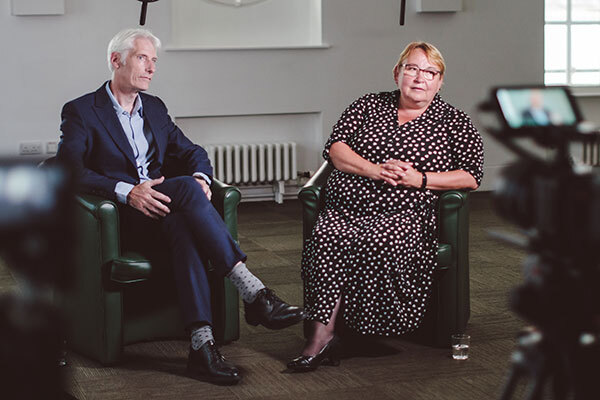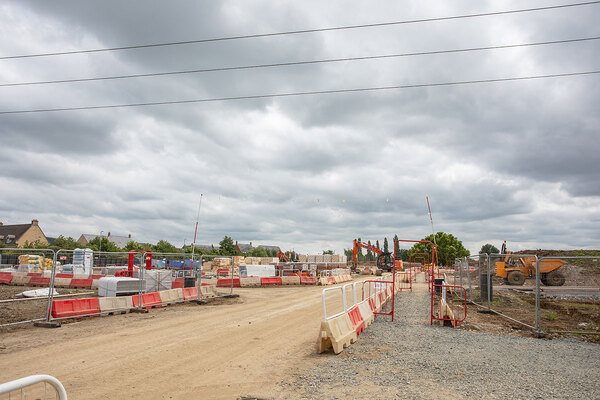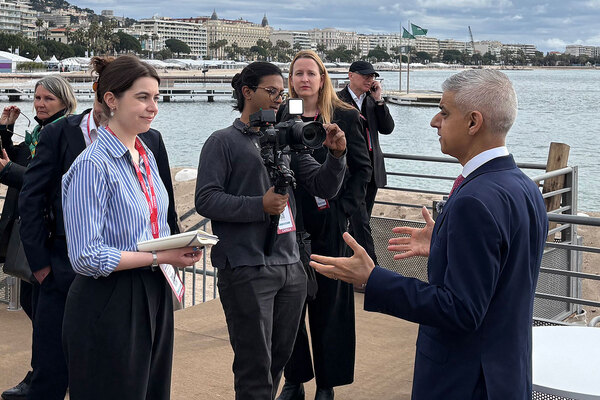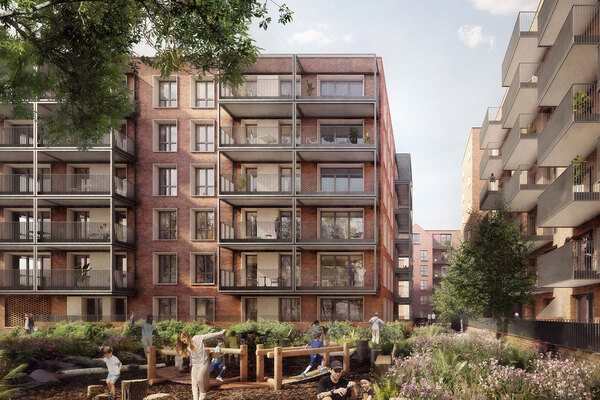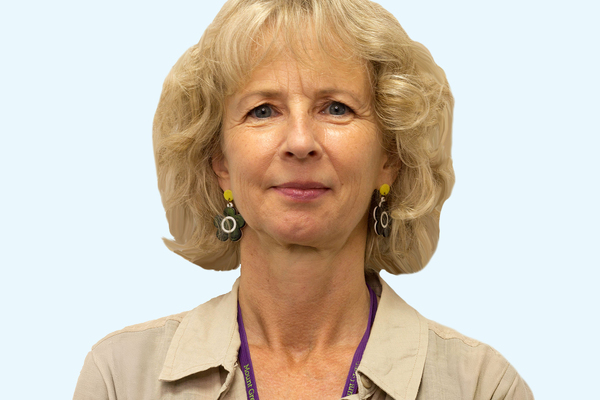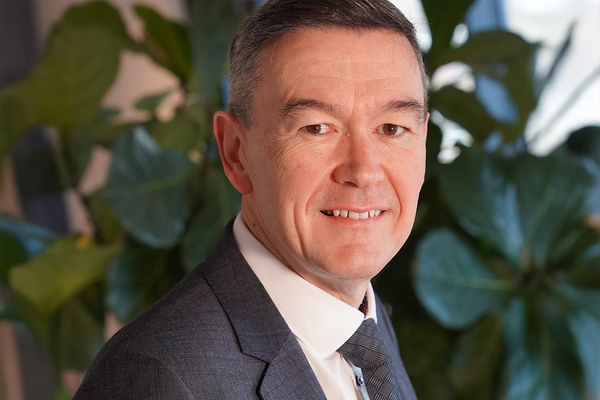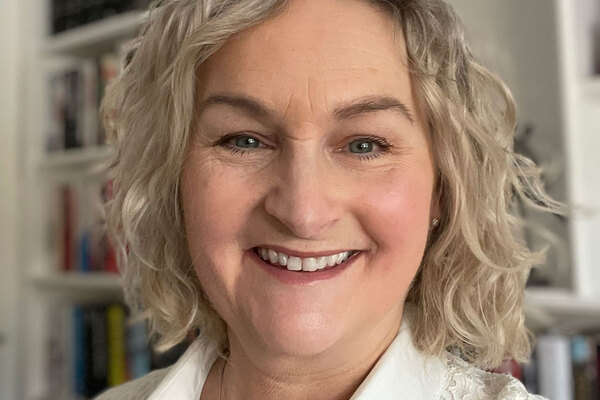15 minutes with… Tessa Barraclough, head of sustainability at Riverside
Riverside’s head of sustainability, Tessa Barraclough, is the latest housing professional to be interviewed in Inside Housing’s series on up-and-coming people in the housing sector.
How did you get into the sector?
Once you get into social housing, it feels like you’ll never leave. It gets its claws into you. I started off at Peabody. I worked in sustainability there for about 10 years and then moved on to become Head of Design and Technical at One Housing.
Then the role at Riverside came up and I realised there was much more to be done on sustainability. It felt like the right time to refocus, as it feels like the sector is really gaining momentum on this issue.
What attracted you to a career in sustainability?
I started volunteering at university for a recycling social enterprise doing waste audits. The moved on to an energy consultancy and worked my way up through answering the phones to helping people with grants and energy auditing. It got increasingly technical and then I ended up doing three degrees over the course of my career.
I did a Master’s at the Centre for Alternative Technology and another one in Architectural Technology.
Tell us a bit more about your current role.
It is a newly created role at Riverside. I’m currently building the team. The way we’ve structured it, I think we’ve done something fairly unique in the sector. The planning and investment teams are coming over to the sustainability team. So all that forward planning for zero carbon and our major investment works are going to come under sustainability.
One thing that came through in the first year of our strategy was the idea that it’s going to be difficult for people to carry on with business as usual. So there was an understanding that this issue needs real focus.
Alongside the planning and investment restructuring, we’re essentially partnering across the business to make it as easy as possible to incorporate sustainability into other areas, such as finance, procurement and housing management.
What are some of the big challenges ahead?
Obviously, we have to talk about the cost of living crisis and the impact that is having on our residents. Sustainability and the need to retrofit is about making homes more efficient and cheaper to run and looking at how those running costs can be more affordable.
Ultimately, we’re here to service our residents. Increasingly, residents are asking us about when we’re going to upgrade their homes, as opposed to selecting properties to upgrade.
It feels like we’re taking a more holistic approach, like it’s a different world at times.
How does this fit with the sector’s wider approach to climate change?
Obviously, it relates back to the bigger picture of climate change. I see that in some of the really interesting meetings I’ve been having about innovative finance and how to fund net-zero targets that go beyond just how much a scheme might cost.
Sometimes it can feel like the sector is out on its own in terms of being asked to solve some of these problems. But I think we’re good at collaborating and it feels like our external partners, consultants, contractors and lenders are now coming together in a way that I haven’t seen before.
What’s your proudest work moment or biggest achievement so far?
I’ve worked in sustainability for more than 17 years. Due to the scale of the funding involved and the time and effort put in from a large and diverse team, I think my proudest moment so far is Riverside’s successful £12.7m bid for funding from the Social Housing Decarbonisation Fund from the Department for Energy Security and Net Zero.
We brought people together from various parts of the business and put in a comprehensive and well-considered bid, which had huge support from the board, procurement colleagues, finance colleagues and asset colleagues.
It was just one of those moments where you felt the genuine enthusiasm of senior management and the whole team really wanting to do this.
What has been your hardest moment?
The retrofit sector was starting to ramp up and deliver at scale, and it was achieving more than two million insulation installations a year. Then we had a change of government direction and funding.
Contractors that, in good faith, had put a lot of time and effort into training people up and building capacity just saw the bottom fall out of the sector.
We are still suffering the consequences of that. People who were burned through that process are still lost to the sector. Those skills and knowledge have dissipated.
Contractors are now rightly wary of engaging. It means we’ve got to make some really big commitments, because they want a guaranteed workstream.
Who has been the most important person in your career so far – and why?
Nic Wedlake was a colleague I ended up job-sharing with at Peabody. Job-sharing was kind of a new world to me and I realise there must be occasions when it does not work, but our jobshare was really successful. Nic has a fantastic mind and likes to think through challenges.
He is always generous with his time and knowledge and that made it even more of a success. To have someone at the same level as you who you can bounce ideas off was hugely valuable.
What’s the best piece of work advice you’ve ever been given?
Nic always asked a question that I now always ask: “Why wouldn’t we?”
When you’re doing blue-sky thinking, sometimes you’re already putting yourself down and thinking: “We couldn’t possibly do that.”
But Nic would always ask: “Why wouldn’t we?”
When you’re doing this as an exercise, it forces you to make a list of all the reasons you think you cannot do something. Then you think about how you can overcome all those barriers.
What this taught me is that if you can think through all the challenges and overcome them, then you can put together a really strong case for something.
If your logic and reasoning stack up, then there is no reason why you shouldn’t do it.
Tessa Barraclough, head of sustainability, Riverside
Sign up for our daily newsletter
Already have an account? Click here to manage your newsletters
‘15 minutes with…’ series
In our ‘15 minutes with…’ series, we have a quick chat with the biggest names in the sector about the most important issues.
Previously, we have featured:
Mushtaq Khan, chief executive of the Housing Diversity Network
Barbara Brownlee, chief executive of Soho Housing
Eddie Hughes, former minister for rough sleeping and housing
Geeta Nanda, chief executive of Metropolitan Thames Valley Housing
David Bogle, chair of Homes for Cathy
Laurence Carr, money coach at Yorkshire Housing
Dinah Roake, chair of the London Housing Panel
Sheron Carter, chief executive at Hexagon
Helen Spencer, executive director of growth at Great Places
Julie Wittich, executive director of assets and sustainability at Accent
Ian Mulheirn, executive director of policy at the Tony Blair Institute for Global Change
Kevin Ruth, chief executive of Together Housing
Piers Williamson, chief executive of The Housing Finance Corporation
Seyi Obakin, chief executive at Centrepoint
Fayann Simpson, senior independent director at L&Q
Mark Perry, chief executive at Vivid
Rose Bean, executive director of assets and sustainability at Abri
Ruth Cooke, chief executive at GreenSquareAccord
Ben Denton, managing director at L&G Affordable Homes
Simon Dudley, chair at Ebbsfleet Development Corporation
Emma Palmer, chief executive at Eastlight Community Homes
Tracy Harrison, chief executive at Northern Housing Consortium


